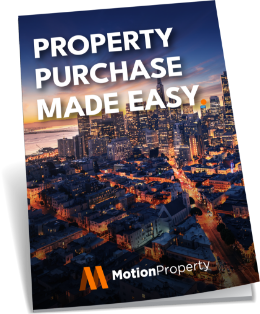More landlords in Melbourne and Sydney are selling off their investment properties compared to a year ago, new research suggests.
PropTrack data shows the estimated share of home sales in Sydney during the December quarter that were investment properties was 35.2%, greater than the same period in 2022 (28.3%) and 2021 (28.9%).
In Melbourne, it has been a similar story. Investor sales made up 35.2% of properties sold in the December quarter, up from 26.9% a year ago and 27.9% in the corresponding period in 2021.
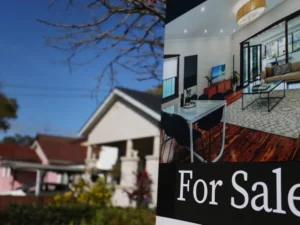
The share of investor sales has risen in most capital cities, but higher interest rates may not be solely to blame. Picture: Getty
However, the sell-offs have coincided with more investor activity in the market generally, according to PropTrack senior economist Paul Ryan.
“There has been more investor activity in the market, both selling and buying. On net, we’ve seen more investors entering the market than investors leaving the market,” he said.
Rental property shortages have lured investors into the market over the past six months, keen to take advantage of the rising yields, Mr Ryan said.
Nationally, rents have increased strongly, by more than 11% over the past year.
“These rental shortages aren’t going to be alleviated in the short term, so I think investors can see that although interest rates are high now, interest rates might reduce in the future, and rents are likely to keep growing strongly.”
Why investors are selling up
Mr Ryan explained that a portion of investors is always leaving the market, mostly because they reach retirement age and the benefits of negative gearing end as their incomes decline.
“If you’re a landlord that’s held the property for a while and you’ve seen interest rates increase, quite good capital growth, and don’t expect maybe as much capital growth in the near term, that might make it a good time for you to liquidate your holdings,” he said.
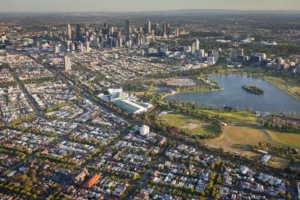
Melbourne has recorded the biggest increase in the share of investor sales, with industry professionals pointing to interest rates, maintenance costs and tax concerns. Picture: Getty
While Mr Ryan conceded higher mortgage costs might trigger some investors to sell, investor conditions were “quite positive” with no rate hikes predictions soon.
“The outlook for both rents and interest rates are positive for investors,” he said.
“Most of the discussion is just about the timing and quantity of interest rate cuts, potentially later in the year.”
In Melbourne, Barry Plant Essendon auctioneer Anthony Molinaro told realestate.com.au a lot of investors were selling up due to higher rates or because their older properties required costly upgrades.
“We see a lot of investors coming off an interest only loan and going to principal and interest, who can’t afford to keep that going with their lifestyle,” he said.
“We’re also noticing investors selling that have got older properties requiring a lot more maintenance, as well as all of that new rental compliance that came in a couple of years ago.”
He said investors faced with costly upgrades have already benefited from capital growth, given they bought long ago, and want to cash in rather than do big fixes.
Landlords with multiple properties are also citing Victoria’s land tax changes as a disincentive, he added.
“The multi landlords are not wanting to hold on. They’ve got all of these properties, but they’ve got no money because they’re just paying it all in outgoings.”
More investor buyers are coming on board, but not as many as two years ago, he added.
Former Real Estate Buyer’s Agents of Australia president, Cate Bakos, who owns 11 properties in Victoria, said the state has become unfriendly for investors.

Buyer’s agent Cate Bakos currently ranks Melbourne a 3/10 for the ease of investing due to government policies.
“The biggest turn off for investors is the loss of a 120-day notice to vacate option to allow landlords to evict dodgy tenants, an option available in every other state,” Ms Bakos said.
“And the temporary land tax increase needs to go, it’s the straw that broke the camels back for a lot of people.
“Otherwise, I think property investors will turn to other asset classes and it’s understandable.”
In NSW, agency Ray White said about 17% of its purchases this year have been by investors.
“That’s the lowest across all of our capitals,” said Ray White NSW state auctioneer Perry Edmondson-Clark.
“It’s probably not a surprise, because it’s so expensive to buy, whether it’s Sydney or even Central Coast or South Coast.”
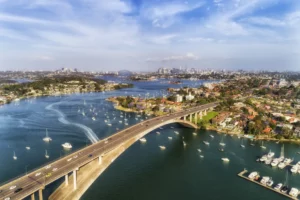
Ray White estimates just 17% of purchases this year have been by investors, with PropTrack data showing an increase in investor sales. Picture: Getty
Mr Edmondson-Clark said potential investors are waiting to see what happens with interest rates before making a move.
“They’re obviously hoping to see rates fall throughout the year to then make those yields slightly better and then re-enter that investment space,” he said.
When it comes to investors selling, numbers had not changed much in the past year but they are “doing everything they can to hang on”, he said.
The state that’s bucking the trend
The share of investment sales were higher compared to a year ago in every capital city, except one.
In Brisbane, investor sales made up 32% of properties in the December quarter, compared to 29.9% in 2022. In Perth and Hobart and Darwin, the proportion of investor sales was also slightly up in the December quarter, compared to the same period in 2022.
Adelaide was the only market to buck the broader trend.
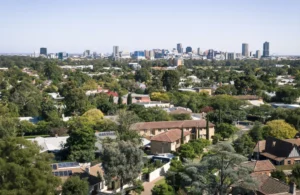
Adelaide is the only capital city to have seen the share of investor sales fall over the past year. Picture: Getty
There, 27.8% of sales were by investors in the December quarter 2023, compared to 29% in the same period in 2022, and 31.5% in 2021.
Adelaide has been the strongest capital city market since the pandemic, with home values up almost 60% since March 2020. The number of homes listed for sale is also well below the decade average, driving vacancy rates to below 1%.
PropTrack expects the strong conditions in Adelaide will continue through the year, predicting price growth of between 4% and 7% in 2024.
Source: realestate.com.au










